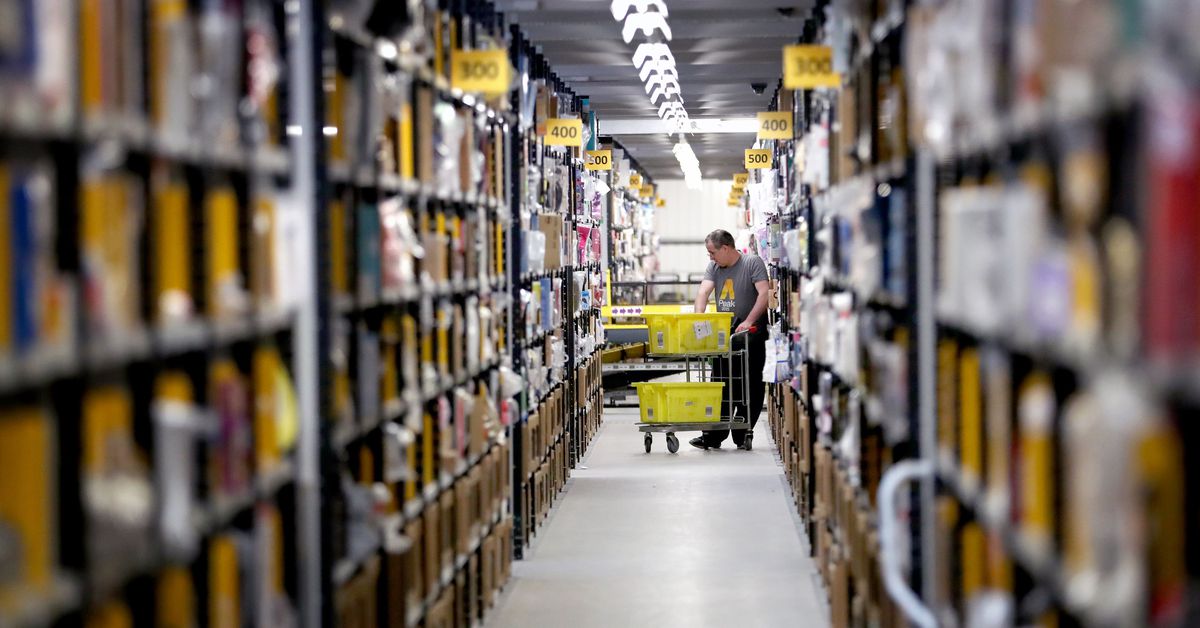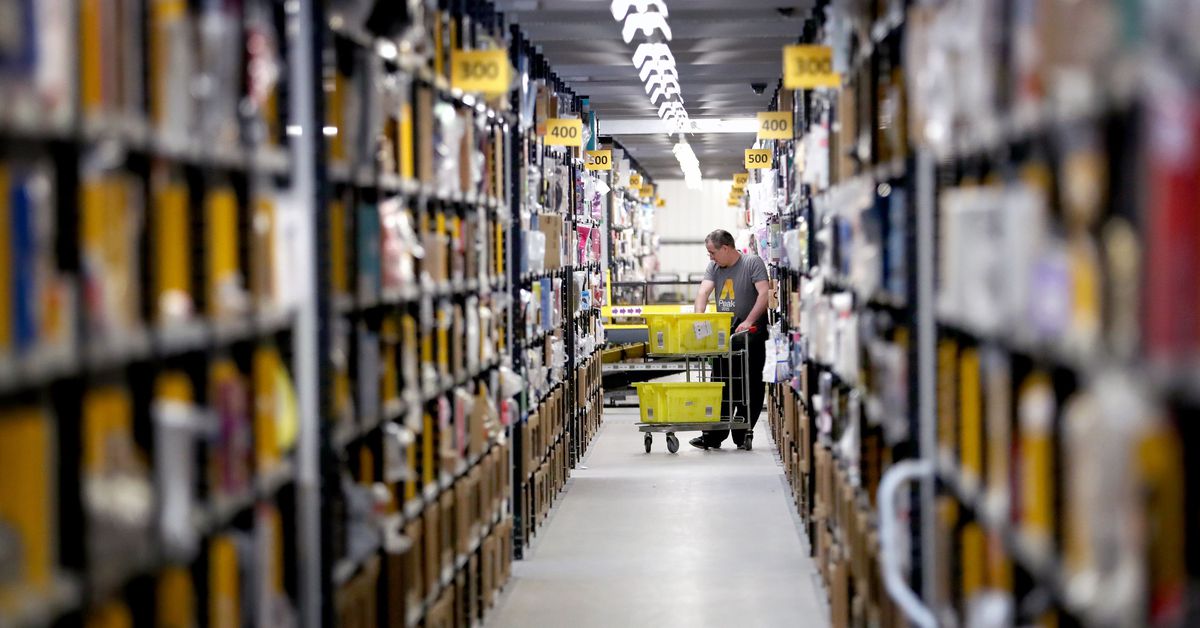
Amazon marks millions of unsold products for destruction each year in the UK, according to a new investigation by British television program ITV News. ITV found stacks of boxes marked “destroy” that were filled with electronics, jewelry, books, and other new or gently used items in one warehouse’s “destruction zone.” The news outlet caught the practice on camera while going undercover at the Dunfermline fulfillment center in Scotland. It says it tracked some of the goods to recycling centers and a landfill.
About 124,000 items at Dunfermline were labeled “destroy” during a single week in April, according to an internal document obtained by ITV News. Just 28,000 items were set aside for donations during the same period. About half of all the stuff that’s trashed are things that people returned, a former Amazon employee told ITV. While the other half are “unopened and still in their shrink wrap,” the ex-employee said.
“Dyson fans, Hoovers, the occasional MacBook and iPad”
“I used to gasp. There’s no rhyme or reason to what gets destroyed: Dyson fans, Hoovers, the occasional MacBook and iPad; the other day, 20,000 Covid (face) masks still in their wrappers,” said the former employee who spoke anonymously to ITV News.
Many third-party sellers pay to keep their stock in Amazon warehouses. But if their stuff doesn’t sell, they might find it more cost-effective to just throw out the products instead of keeping them on the shelf. Other investigations have also dug into Amazon’s heaping waste piles. The equivalent of a truckload of goods a week was sorted out for destruction at another warehouse in Germany, an investigation by environmental group Greenpeace found this year. And in 2018, Amazon destroyed more than 3 million pounds of products in France, a French TV station found.
“It’s an unimaginable amount of unnecessary waste, and just shocking to see a multi-billion pound company getting rid of stock in this way,” Sam Chetan-Welsh, a political campaigner with Greenpeace, told ITV News.
Amazon denied sending any products to landfills in the UK in a statement to The Verge, and claims that the landfill that ITV identified is actually a recycling site. “We are working towards a goal of zero product disposal and our priority is to resell, donate to charitable organisations or recycle any unsold products,” Amazon said in its statement.
E-commerce is creating new environmental hazards
In 2019, after the investigation into its waste in France, the e-commerce giant created a new program to donate leftover stock in the US and UK. Less than 1 percent of its products are incinerated for energy generation, Amazon said in an email to The Verge, saying this was a last resort.
E-commerce is creating new environmental hazards as online shopping grows more popular and more warehouses crop up near communities to meet demand. Customers have also come to expect easy returns, which can drive up waste and emissions. It’s all coming to a head this week as Amazon Prime Day kicks off. During Prime Day 2020, third-party retailers saw their sales grow 60 percent compared to the year before, an even bigger increase than what Amazon’s retail business saw.
